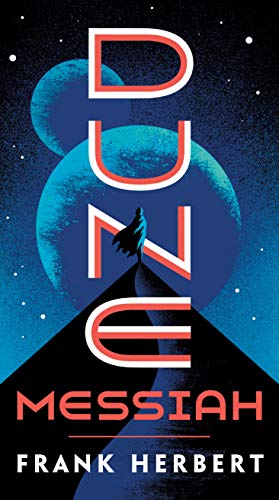Book Review: "Dune Messiah" by Frank Herbert
3.5/5 stars
*Spoiler alert!*
“The flesh surrenders itself. Eternity takes back its own. Our bodies stirred these waters briefly, danced with a certain intoxication before the love of life and self, dealt with a few strange ideas, then submitted to the instruments of Time. What can we say of this? I occurred. I am not…yet, I occurred.”
Dune
Messiah, the
second installment of the science fiction “Dune Chronicles” series by Frank
Herbert, receives a conflicted 3.5/5 stars from me.
On one
hand, it was nice to revisit the Dune universe, yet I felt a bit disoriented by
the fact that it picks up 12 years after Dune. Not to mention that the
atmosphere is more cynical and political than the feeling of hope and
revolutionary transformation, of not just a political transformation for the
better, but an environmental one as well. Lastly, and most disappointing, the
book suffered from a dearth of strong women characters, who spend the book
mostly focused on producing an heir and protecting Paul’s imperial rule.
(Looking at Chani, Princess Irulan, Alia, and Lady Jessica, albeit from a distance.)
This is
not to say that I didn’t enjoy the book as a whole. It was fine, yet much
darker than the first book. (If you’re looking for a hopeful atmosphere, then
this isn’t the book for you.) I enjoyed the audiobook narration, where most
main characters had their own voice actor to bring them to life for the reader.
The writing, overall, is beautiful, throwing poignant nuggets like the one I
introduced this review with. And also, this one:
“If you need something to worship, then worship life - all life, every last crawling bit of it! We're all in this beauty together!”
Paul Maud’dib,
feared emperor of the known universe, wishes to escape the destructive future
he sees for himself and the universe via the terrible Jihad he unleashed upon
the universe upon his ascendance. He also hopes to shield his beloved Chani and
their unborn child from its corruption. He’s ruthless in pursuit of this aim
and has a more cynical, dark personality and view of the world. In this way,
Dune Messiah reads like a Shakespearean tragedy, where Paul’s attempts to avoid
this catastrophic future only bring him and everyone in its orbit that much
closer to it.
“You can’t stop a mental epidemic. It leaps from person to person across parsecs. It’s overwhelmingly contagious. It strikes at the unprotected side, in the place where we ledge the fragments of other such plagues. Who can stop such a thing? Muad’dib hasn’t the antidote. The thing has roots in chaos. Can orders reach there?”
If
anything, I think the most important message of Dune Messiah is the
corrupting power of religion when combined with a despotic government of far-reaching
arms. The consequences of absolute power corrupting absolutely. A message I
think is worth repeating many, many times over.
While not
my favorite book of this series so far, Dune Messiah was still a
thought-provoking work of old-school science fiction. I am a bit conflicted
about continuing the “Dune Chronicles” series, but I may yet change my mind,
because I am curious about what happens next after the dramatic ending of Dune
Messiah.
Happy
reading!
--BookOwl





Comments
Post a Comment